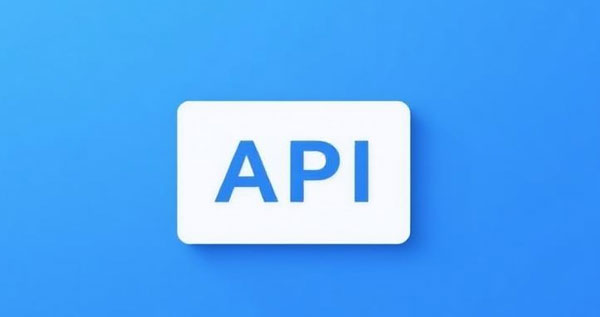How Residential Proxies Support AI Data Collection: A Comprehensive Guide
Introduction
In today’s rapidly advancing world of artificial intelligence (AI), collecting large-scale, high-quality data is the cornerstone of training effective AI models. Whether it’s natural language processing, image recognition, or market forecasting, AI relies on diverse data from global sources. However, challenges like geographic restrictions, anti-scraping measures, and data privacy concerns often hinder developers. Residential proxies, as a powerful and secure solution, are emerging as a critical tool for AI data collection. This guide explores how residential proxies empower AI data collection, spotlighting the exceptional offerings of Luckdata as a practical example of their real-world value.
What Are Residential Proxies and Their Core Role?
Residential proxies are IP addresses assigned to real residential devices by Internet Service Providers (ISPs). Unlike data center proxies, which originate from servers, residential proxies mimic the traffic of everyday household users. This authenticity and high anonymity make them a standout choice for AI data collection. Specifically, residential proxies:
Bypass Anti-Scraping Mechanisms: By masking real IPs and mimicking human behavior, they evade IP bans and CAPTCHA challenges.
Overcome Geographic Restrictions: They simulate users from various locations, unlocking content restricted to specific regions and ensuring diverse data sources.
Enable Large-Scale Scraping: Through request distribution and IP rotation, they meet AI’s demand for massive datasets.
For instance, if you’re building an AI model to predict global weather patterns, residential proxies allow you to gather real-time data from meteorological sites worldwide without being flagged for unusual IP activity.
Why AI Data Collection Needs Residential Proxies
The complexity of AI data collection stems from its stringent requirements for volume, quality, and diversity, often accompanied by these challenges:
Widespread Anti-Scraping Technologies: E-commerce platforms, social media, and news sites frequently deploy rate limits, IP detection, or machine learning algorithms to block automated scraping. Residential proxies, with their genuine user-like traits, significantly reduce the risk of being flagged.
Geographic Barriers: Some data is only accessible in specific regions, such as localized social media posts or regional pricing info. Luckdata offers residential IPs spanning over 200 countries and regions, with targeting down to the country, state, and city level, enabling seamless global data access.
Scale and Efficiency: Training robust AI models may require millions or billions of data points. Luckdata’s pool of over 120 million residential IPs, paired with unlimited concurrent sessions, ensures efficient and stable large-scale collection.
Privacy and Compliance: Protecting user privacy and adhering to legal standards are paramount during data collection. Luckdata upholds the highest ethical and compliance standards, delivering a secure and trustworthy service.
In contrast, data center proxies, while fast and affordable (e.g., Luckdata’s 5GB/30-day plan at $12), are more easily detected due to their non-residential nature, making them better suited for streaming or bulk tasks rather than AI’s high-anonymity needs.
Real-World Applications of Residential Proxies in AI Data Collection
Residential proxies shine across a variety of AI use cases:
Market Research and Competitive Analysis: Businesses use AI to analyze competitors’ pricing or market trends. Residential proxies simulate users worldwide, collecting real-time data. Luckdata’s rapid response (around 0.6ms) and 99.99% uptime ensure data timeliness.
Social Media Sentiment Analysis: AI models analyze global user comments to gauge consumer sentiment. Residential proxies enable multi-account management and IP rotation to avoid bans. Luckdata’s dynamic residential proxies excel in this scenario.
Ad Verification and Optimization: Advertisers verify ad performance across regions, and residential proxies enhance accuracy by mimicking diverse user environments. Luckdata’s unlimited IP rotation boosts efficiency.
Natural Language Processing (NLP): Collecting multilingual, region-specific text for NLP models is made easier with residential proxies. Luckdata’s global targeting aids in building smarter, more inclusive language models.
E-commerce Optimization: AI-driven price monitoring and inventory analysis require bypassing geo-restrictions. Residential proxies support multi-account management and research, with Luckdata enhancing privacy and efficiency.
Stock Market Insights: Investors leverage AI for real-time market data analysis. Residential proxies improve privacy and data access, with Luckdata’s high-performance servers ensuring trading accuracy.
How to Choose the Right Residential Proxy Provider
Selecting a residential proxy provider is a pivotal step for successful AI data collection. Here are key factors to consider:
IP Pool Size and Coverage: The number and reach of IPs determine flexibility. Luckdata boasts over 120 million residential IPs across 200+ countries and regions, offering precise geo-targeting.
Speed and Stability: Real-time and uninterrupted collection is critical. Luckdata delivers 0.6ms response times and 99.99% uptime for robust large-scale scraping.
Protocol Support and Compatibility: Different tasks demand varied protocols. Luckdata supports HTTP/HTTPS and provides APIs with multi-language integration (e.g., Python, Java, Go, PHP) for seamless use.
Pricing and Flexibility: Cost management matters. Luckdata offers diverse plans: dynamic residential proxies at $15 for 5GB/30 days, data center proxies at $12 for 5GB/30 days, and unlimited residential proxies at $252/day, catering to both small tests and enterprise needs.
Security and Compliance: Prioritize providers with privacy and ethical sourcing. Luckdata adheres to strict commercial ethics, ensuring transparent and secure IP origins.
Technical Support: Reliable support enhances usability. Luckdata provides top-tier technical assistance and developer-friendly documentation for swift issue resolution.
Compared to peers like Oxylabs or Smartproxy, Luckdata stands out with its vast IP pool, competitive pricing, and comprehensive support, making it a top pick for AI data collection.
Technical Implementation: Luckdata Proxy Integration Examples
Practical use of residential proxies requires technical integration. Here are examples using Luckdata:
Python Example:
python
import requestsproxyip = "http://Account:Password@ahk.luckdata.io:Port"
url = "https://api.ip.cc"
proxies = {
'http': proxyip,
'https': proxyip,
}
data = requests.get(url=url, proxies=proxies)
print(data.text)
Java Example:
java
import okhttp3.*;import java.net.InetSocketAddress;
import java.net.Proxy;
public class HTTPDemo {
public static void curlhttp() {
final int proxyPort = Port;
final String proxyHost = "ahk.luckdata.io";
final String username = "Account";
final String password = "Password";
final String targetUrl = "https://api.ip.cc";
OkHttpClient.Builder builder = new OkHttpClient.Builder();
builder.proxy(new Proxy(Proxy.Type.HTTP, new InetSocketAddress(proxyHost, proxyPort)));
builder.proxyAuthenticator((route, response) -> {
String credential = Credentials.basic(username, password);
return response.request().newBuilder()
.header("Proxy-Authorization", credential)
.build();
});
OkHttpClient client = builder.build();
Request request = new Request.Builder().url(targetUrl).build();
try (Response response = client.newCall(request).execute()) {
System.out.println(response.body().string());
} catch (Exception e) {
e.printStackTrace();
}
}
}
Go Example:
go
package mainimport (
"fmt"
"io/ioutil"
"net/http"
"net/url"
"time"
)
var proxyip = "http://Account:Password@ahk.luckdata.io:Port"
var domain = "https://api.ip.cc"
func main() {
u, _ := url.Parse(proxyip)
t := &http.Transport{
MaxIdleConns: 10,
MaxConnsPerHost: 10,
IdleConnTimeout: time.Duration(10) * time.Second,
Proxy: http.ProxyURL(u),
}
c := &http.Client{
Transport: t,
Timeout: time.Duration(10) * time.Second,
}
reqest, err := http.NewRequest("GET", domain, nil)
if err != nil {
panic(err)
}
response, err := c.Do(reqest)
if err != nil {
panic(err)
}
defer response.Body.Close()
res, err := ioutil.ReadAll(response.Body)
if err != nil {
panic(err)
}
fmt.Println(string(res))
}
Luckdata also supports Shell, PHP, and more, offering flexibility for developers. Its unlimited rotating residential proxies are ideal for high-concurrency tasks, ensuring efficiency and stability.
Best Practices and Considerations
To maximize residential proxies’ potential in AI data collection, consider these best practices:
Optimize IP Rotation: Leverage Luckdata’s unlimited sessions to set smart IP rotation intervals, minimizing detection risks.
Ensure Compliance: Adhere to target sites’ terms of service and local laws. Luckdata’s compliance framework offers legal peace of mind.
Monitor and Adjust Performance: Regularly check response times and success rates; Luckdata’s automation tools streamline this.
Balance Cost and Needs: Choose plans based on scale—e.g., $15/5GB for small tests or $252/day for unlimited traffic in large projects.
Data Cleaning and Validation: Post-collection, clean data for quality. Luckdata’s stability reduces invalid data occurrences.
Test and Iterate: Run small-scale tests before full deployment. Luckdata’s free geo-targeting aids quick validation.
How Luckdata Powers the Future of AI
Beyond technical capabilities, Luckdata offers added value for AI developers:
Brand Protection: Detect counterfeit products and monitor market dynamics to safeguard intellectual property and boost brand reach.
SEO Monitoring: Enhance SEO accuracy with residential IPs, optimizing search rankings.
Stock Market Analysis: Provide investors with real-time data for better privacy, analysis, and trading efficiency.
E-commerce Edge: Support ad verification, multi-account management, and research to break geo-barriers.
Social Media Globalization: Strengthen brands’ global competitiveness with enhanced market research.
These features position Luckdata as a strategic partner for AI innovation, not just a proxy provider.
Frequently Asked Questions
Are Residential Proxies Legal?
Yes, when sourced ethically (like Luckdata) and used within target sites’ terms and local laws, they’re fully legal.What Sets Luckdata Apart?
Luckdata excels with its 120M+ IPs, global coverage, cost-effectiveness, and robust support, tailored for AI data collection.How Do I Start with Luckdata?
Visit the Luckdata website, pick a plan, get an API key, and integrate using their documentation.When to Use Unlimited Dynamic Proxies?
Opt for Luckdata’s $252/day plan for high-frequency IP rotation or unlimited traffic needs, like large-scale scraping.
Conclusion
Residential proxies are indispensable for AI data collection, offering anonymity, geographic flexibility, and efficiency to overcome technical hurdles and build smarter models. Luckdata, with its 120M+ residential IPs, coverage across 200+ locations, 0.6ms response times, and versatile pricing, provides unmatched support for AI data collection. Whether you’re a beginner exploring AI or an enterprise seeking scalable data solutions, Luckdata unlocks the full potential of your data collection efforts.
Try Luckdata’s residential proxies today and take your AI projects to new heights!




